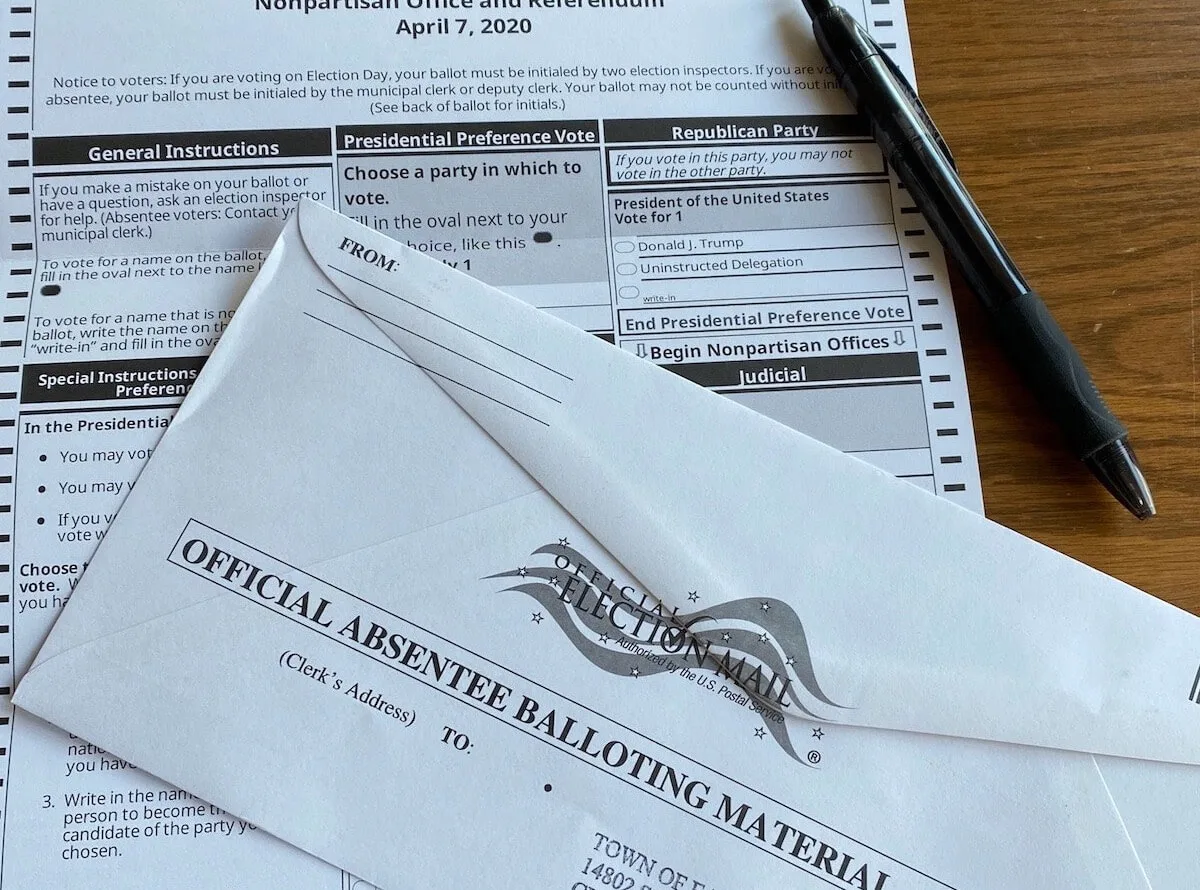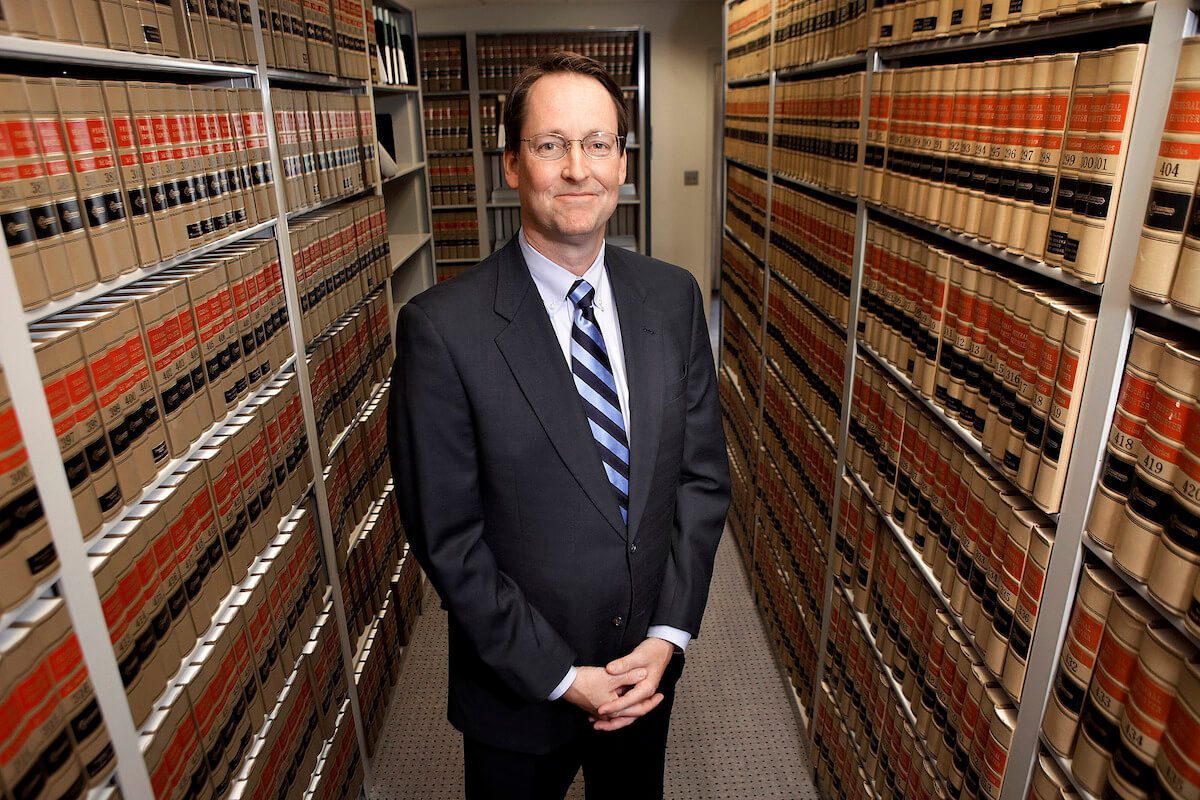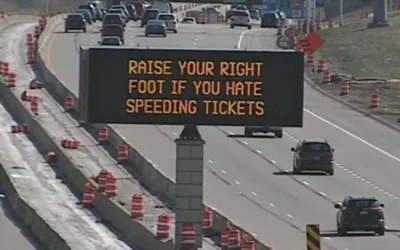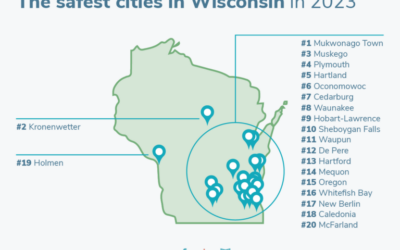
#image_title
Madison-based federal judge’s order allowing extra time won’t go into effect until further arguments are heard.
A federal appeals court on Sunday ruled to temporarily prevent extending the deadlines for absentee ballots to be submitted and counted.
The order undercuts federal Judge William Conley, who last week ruled election clerks must count absentee ballots cast in the Nov. 3 general election that arrive as late as Nov. 9, as long as they are postmarked by Election Day. Conley’s order was quickly challenged by the Republican Party of Wisconsin and the Republican National Committee.
The US Court of Appeals for the 7th District sided with the Republican appeal, ruling that Conley’s order will not take effect yet, presumably to allow time for the court to hear arguments. That means current law still applies and absentee ballots are due to local clerks’ offices and polling stations by 8 p.m. on Nov. 3.
An Election Day postmark will make an absentee ballot late and invalid, for now.
The court did not give further information such as when it may hold a hearing or when it will issue its own ruling.

Various groups such as the Democratic National Committee, Democratic Party of Wisconsin, and Milwaukee’s Black Leaders Organizing for Communities filed lawsuits last spring seeking sweeping election changes—including the extended ballot deadlines—to increase voter safety due to the coronavirus pandemic. Conley consolidated the four lawsuits into one in June.
The lawsuits followed the disastrous April 7 primary election, when legislative Republicans and conservatives on the Wisconsin Supreme Court forced voters to the polls.
The pandemic caused poll workers shortages and polling place closures throughout the state, especially in Milwaukee, where just five polling stations were open instead of the usual 182, and Green Bay, where just two of 32 usual polls were open. A study by the New York University School of Law’s Brennan Center found Black voter turnout was suppressed over 10 percent in Milwaukee on April 7.
The Wisconsin Elections Commission took complaints to heart and is now working closely with the US Postal Service and local clerks to ensure a smooth Nov. 3. One solution it offered was sending absentee ballot applications to 2.7 million registered voters while simultaneously urging voters to send their ballots back as soon as possible to avoid a USPS logjam.
Although more than 1.1 million absentee ballots have already been requested, hundreds of thousands of voters will no doubt cast ballots in-person on Election Day or through early in-person voting. Early voting begins Oct. 20 and ends Nov. 1. Hours will vary by municipality, so voters should check with their local clerk.
Mailed absentee ballots are already making their way to voters. They can be returned via mail, at local clerks’ offices, or at ballot drop boxes in some cities.
The deluge of absentee ballots will likely contribute to delayed election results, raising the possibility that Election Day could turn into more of an Election Week. State statutes currently prohibit clerks from counting absentee ballots before Election Day, even if they arrive well in advance. Almost 240,000 mail-in ballots have already been returned statewide, according to the Wisconsin Elections Commission.

Multiple deaths in shooting at Abundant Life Christian School in Madison
The suspected shooter, a juvenile, is thought to be among those killed. At least six others have been wounded, as well. NOTE: This is an active...

FBI figures show 15% drop in violent crime in 2024
During the first quarter of 2024, there’s also been a 13% drop in aggravated assault, according to the FBI. Murder and rape both decreased by about...

Celebrate Wisconsinbly: A guide to the state’s weird alcohol laws
Did you know that the average Wisconsinite enjoys 634 drinks per year? That’s nearly 150, or an entire keg, more drinks than the national average....

Wisconsin Democrats propose new gun safety measures on campus
A new bill would allow firearms to be banned campus-wide rather than building by building. Saying current rules don’t go far enough to assure safety...




